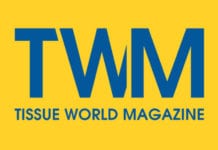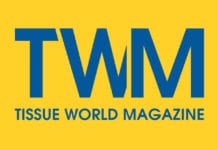Essity is the focus of a Greenpeace campaign that claims it is driving the destruction of critical parts of Europe’s Great Northern Forest in Sweden, Finland and Russia.
The Greenpeace report (Wiping away the boreal) said the company is using pulp from mills supplied by logging companies that are clearcutting some of the region’s last remaining old-growth forests to produce its tissue and toilet paper brands, including Tempo, Lotus, Cushelle, Colhogar and Edet.
Greenpeace said: “Between them, these logging companies are clearing forests that are either protected or earmarked for protection; destroying habitats of threatened species, planting a notorious invasive tree species across thousands of hectares of cleared natural forest and imperilling the livelihoods of indigenous communities.”
Erika Bjureby, Greenpeace Great Northern Forest project leader, said: “While Essity is a world leader in tissue production, it is failing to show leadership in the urgent fight to save the world’s boreal forests from destruction.
“Greenpeace is demanding that Essity cleans up its supply chain which threatens the boreal forest.”
The report documents how in Sweden, Essity buys pulp from its former sister company SCA, which Greenpeace claims is logging critical forest landscapes in the boreal that have been identified by Swedish authorities as having “particularly high ecological preservation values”.
It added that SCA’s planting of non-native lodgepole pine is threatening the indigenous Sámi people’s way of life by decreasing access to natural grazing areas for their reindeer.
In March 2017, Greenpeace said it exposed Essity’s Russian supplier, Arkhangelsk Pulp and Paper Mill (APPM), which is aiming to clearcut parts of a proposed protected area in the Dvinsky forest in Russia.
In response, Essity said: “Essity’s use of wood fibre comprises both recovered fibre (collected recycled fibre) and fresh fibre.
“All fresh wood fibre in our products is to be FSC or PEFC certified, or fulfil the FSC’s standard for controlled wood.
“The FSC, an independent, international certification organisation, promotes the environmentally friendly, socially responsible and economically viable management of the world’s forests.
“Essity prioritises the FSC certification system and encourages all suppliers to work toward certification.
“We view this as an important tool to spread sustainable forestry practices across the globe.”
The company added that in 2016, 6.5m tonnes of fresh fibre was delivered to Essity in the form of wood, pulp, packaging, mother reels and third-party supplied articles.
It said: “100% of the fibre was certified or controlled which means that our suppliers uphold and safeguard principles on biodiversity and forest conservation.
“Essity requires pulp suppliers to guarantee that they have robust systems and documented procedures in place to ensure traceability and compliance throughout the supply chain.”
It added that discussions are currently ongoing in the FSC organisation to determine how Intact Forest Landscapes are to be included in the certification work.
Essity said it is engaged in dialog with Greenpeace regarding developments of responsible forestry and the integration of Intact Forest Landscapes into the FSC.
Kersti Strandqvist, Essity SVP group function sustainability, said: “Essity places the highest priority on sourcing sustainable materials.
“Essity adheres to the FSC standards – the highest and most respected in the world and we require that all our suppliers do the same.
“Recently Greenpeace has implied that FSC standards are not enough. Discussions are already ongoing within FSC, involving stakeholders such as ourselves and Greenpeace, exploring areas of improvement.
“In the meantime, we will continue to follow FSC recommendations as the current gold standard”.






























